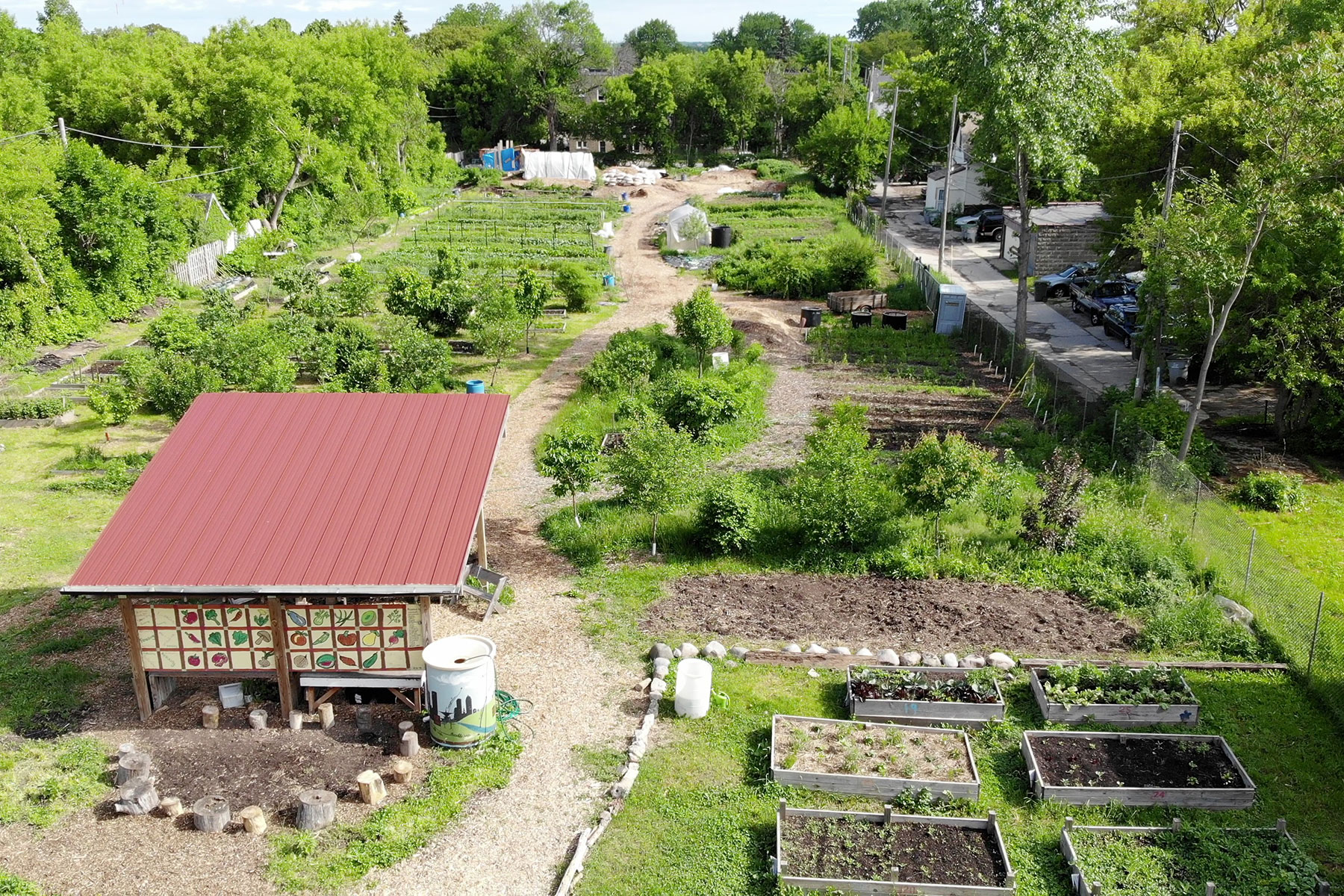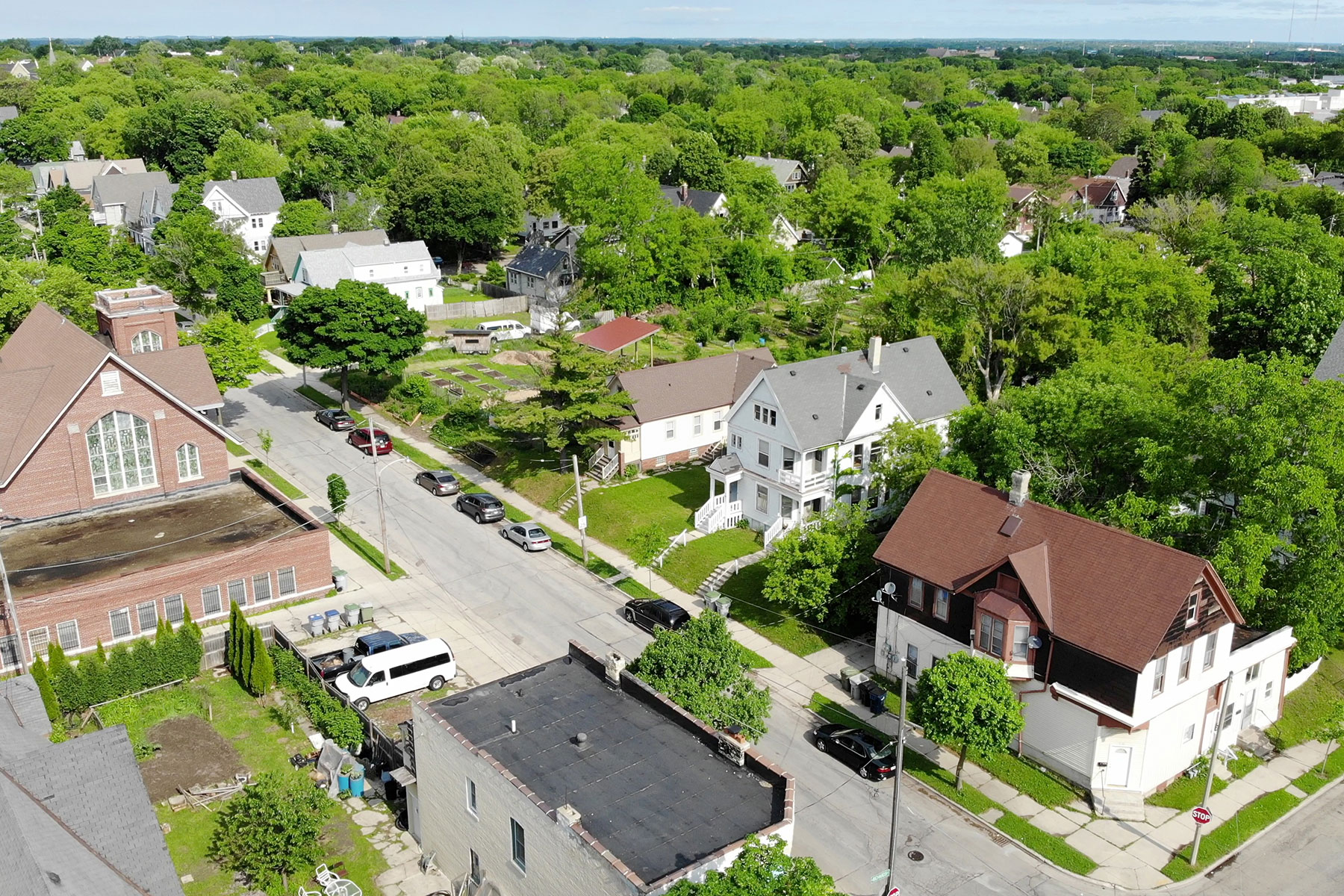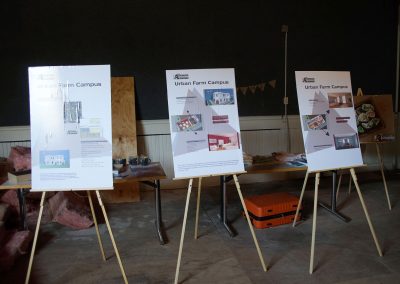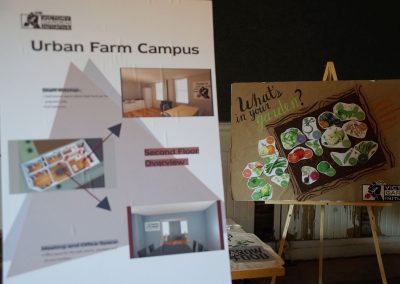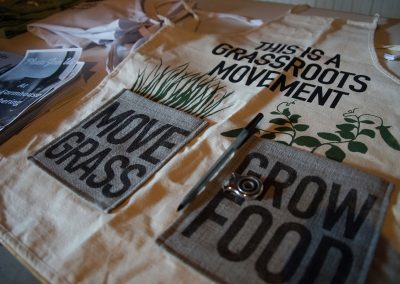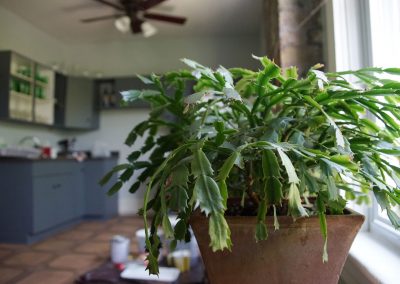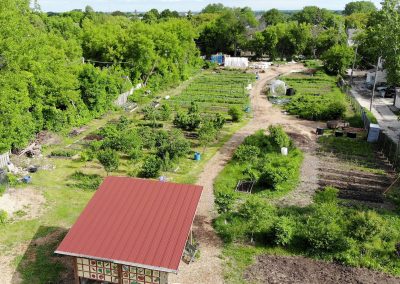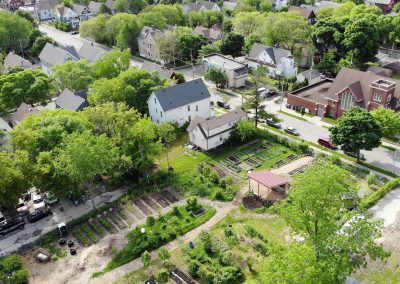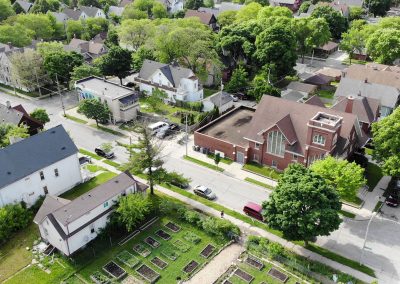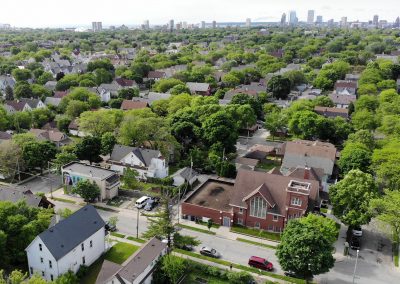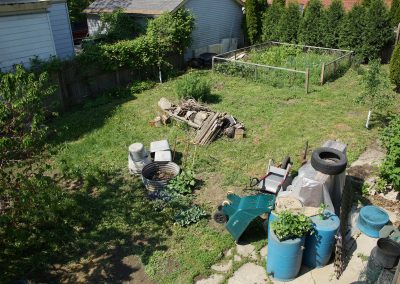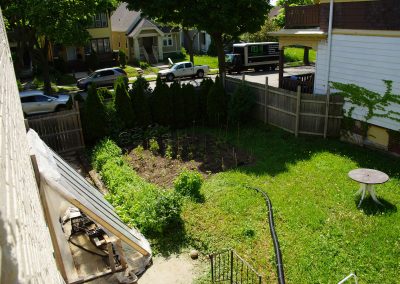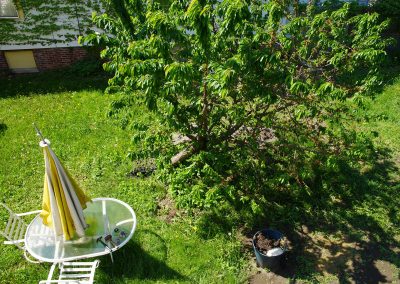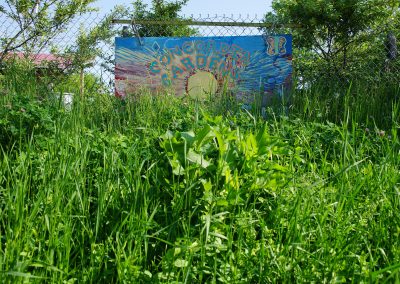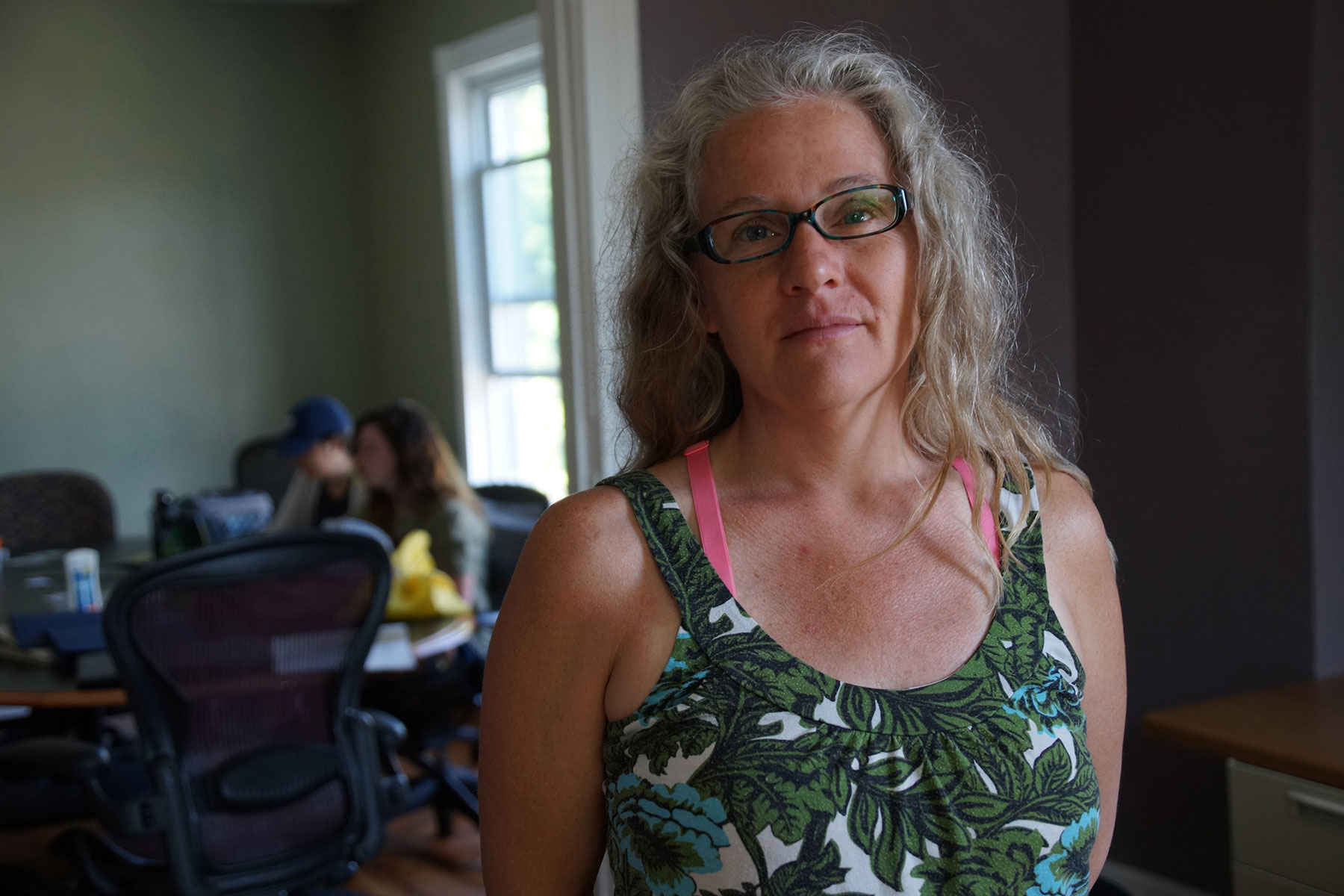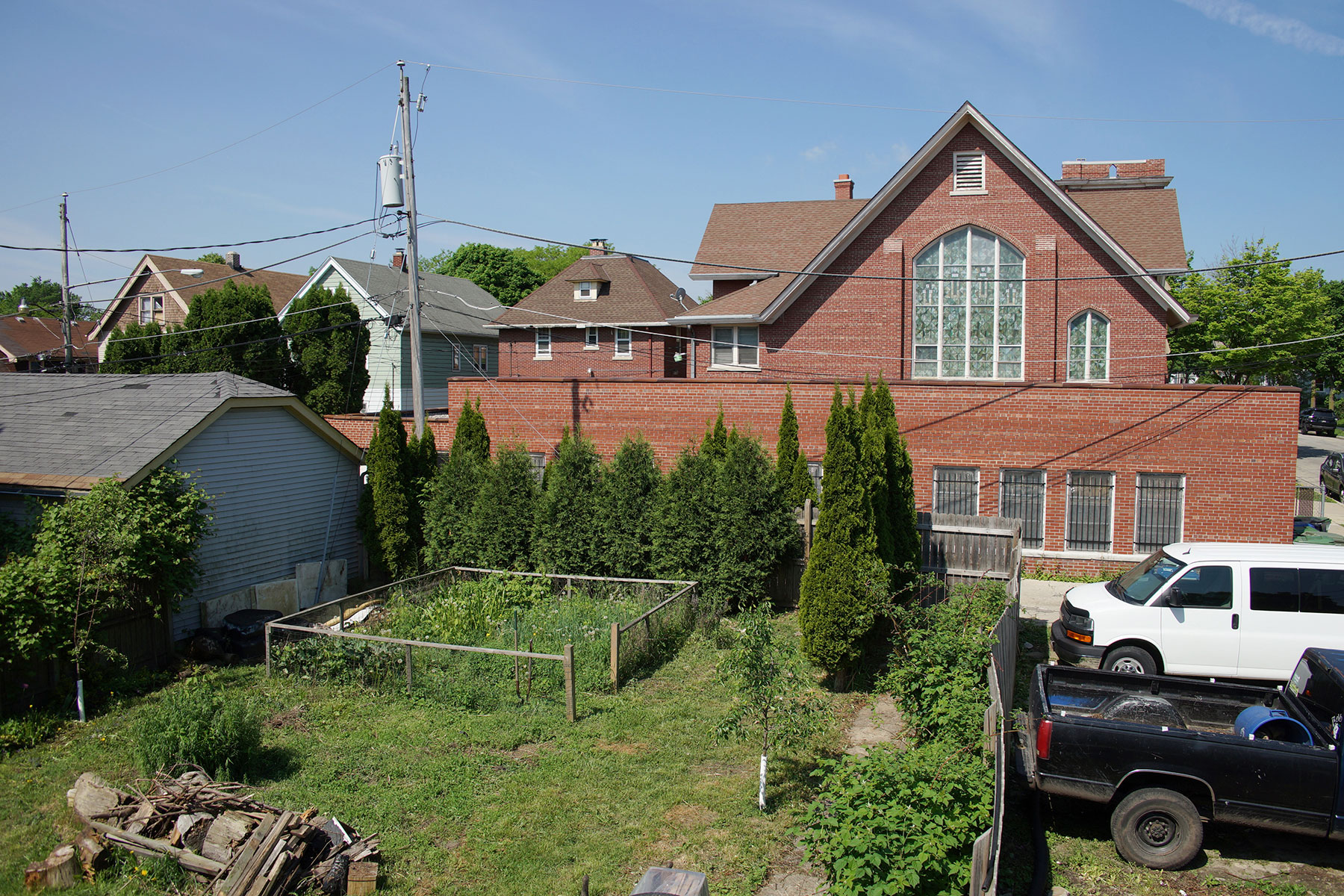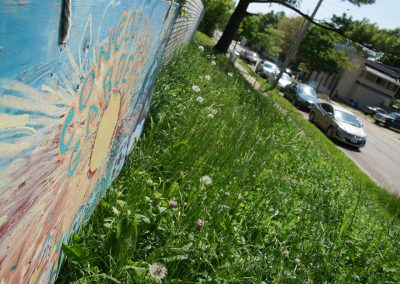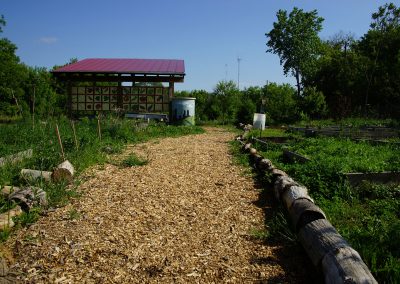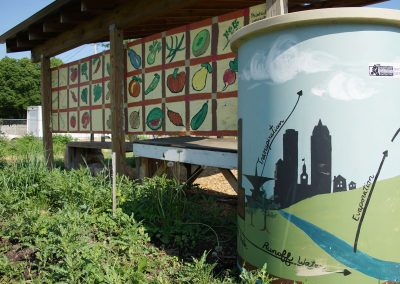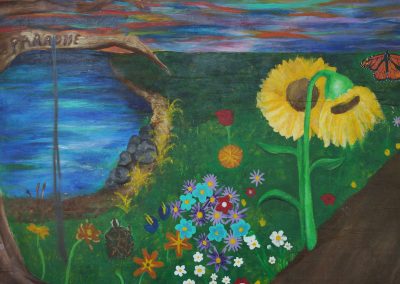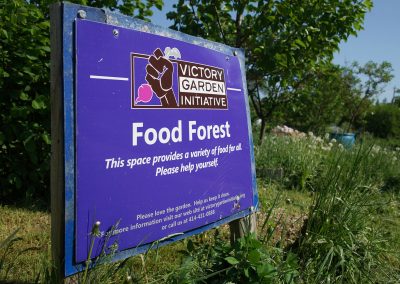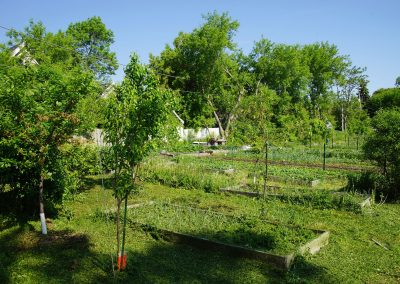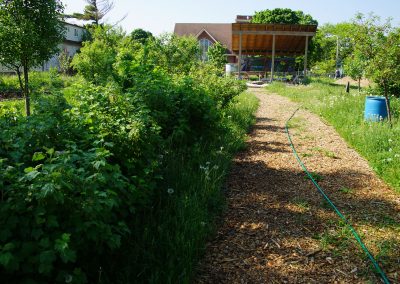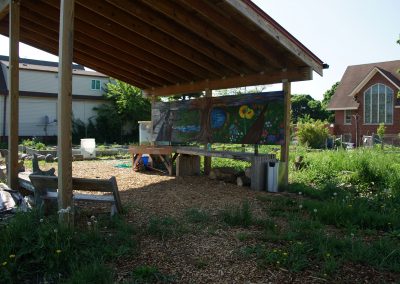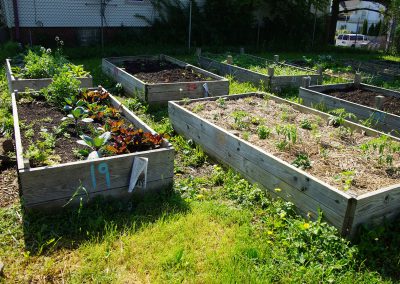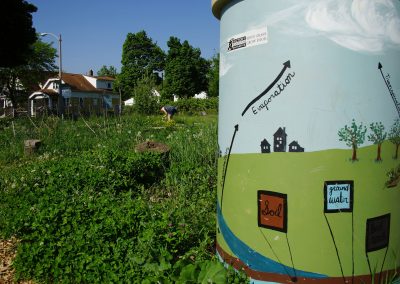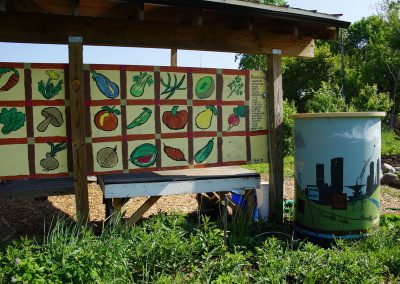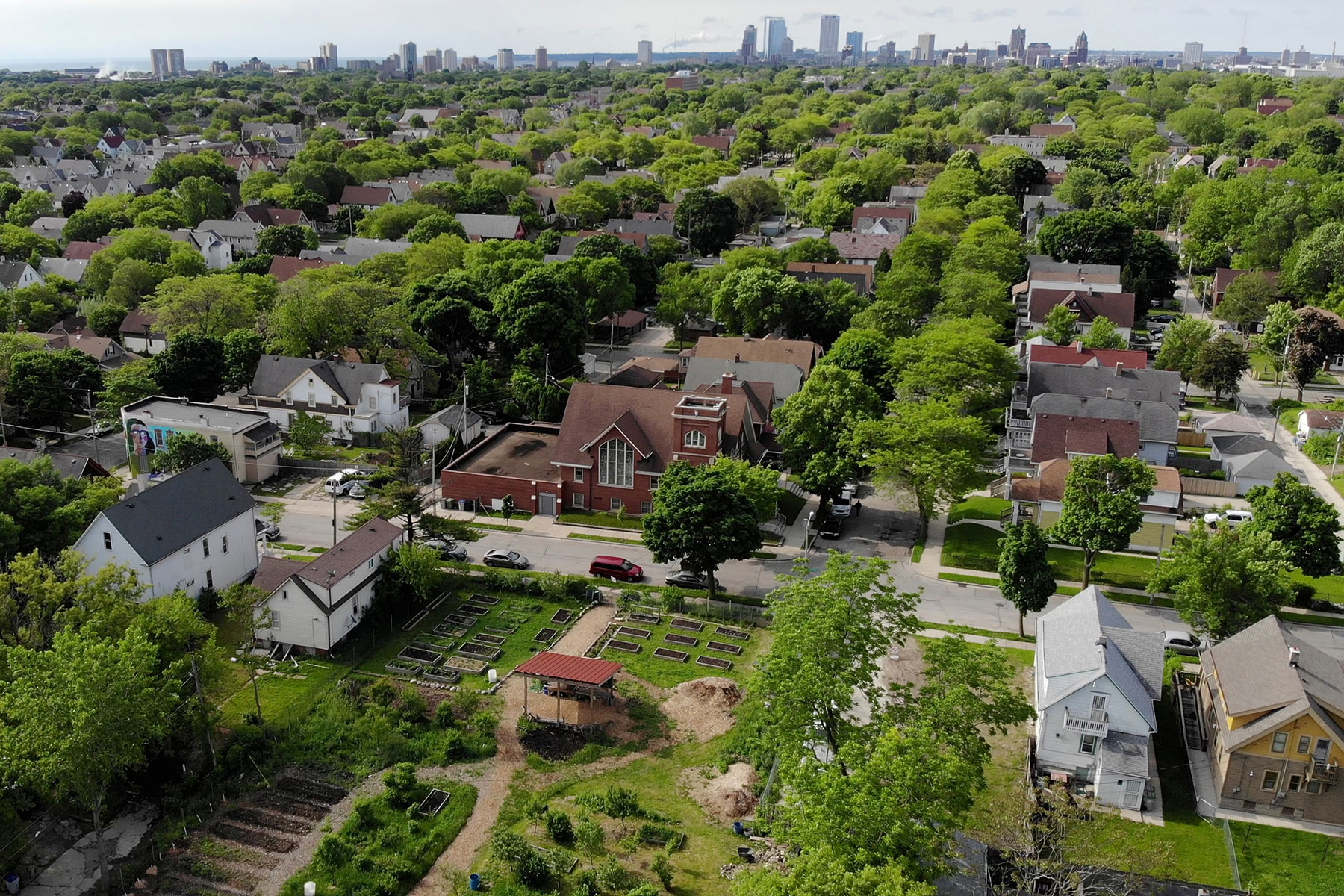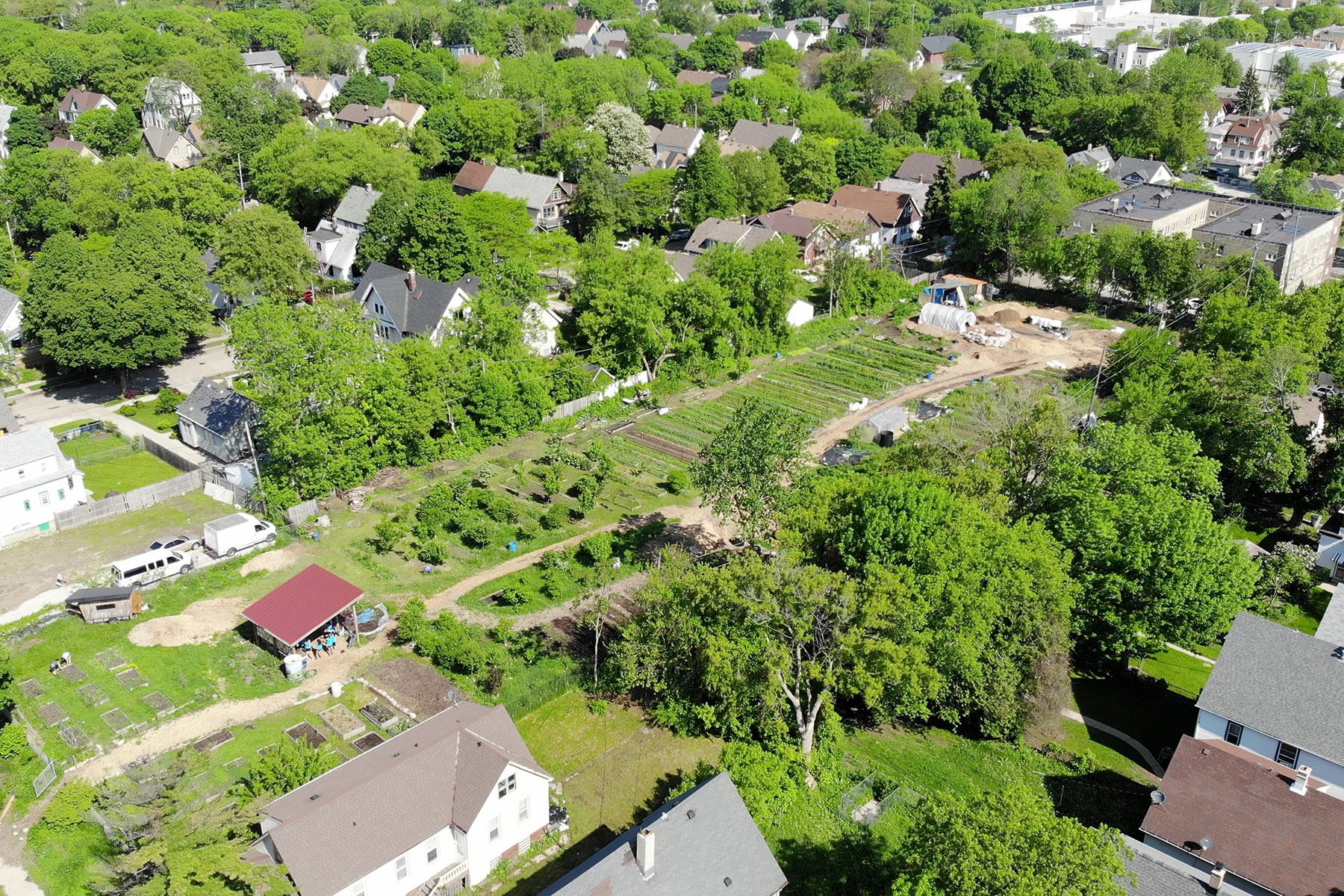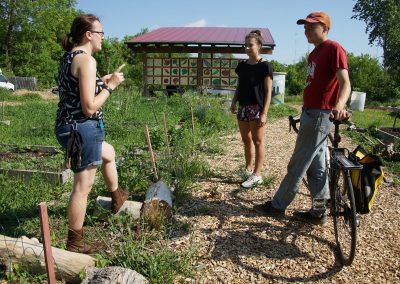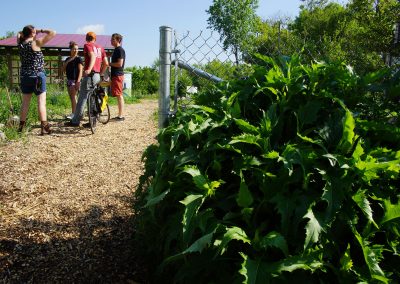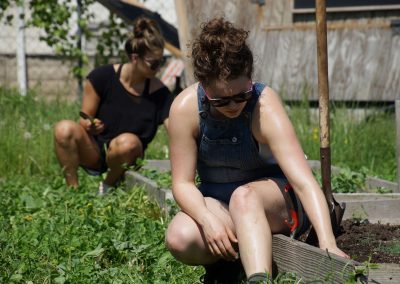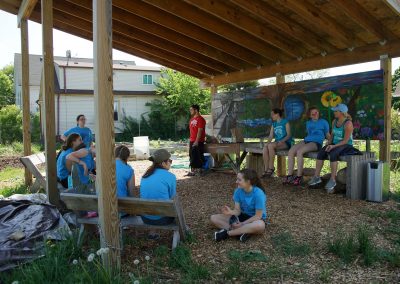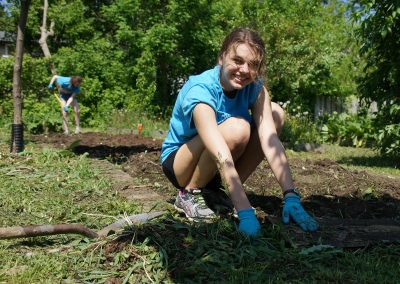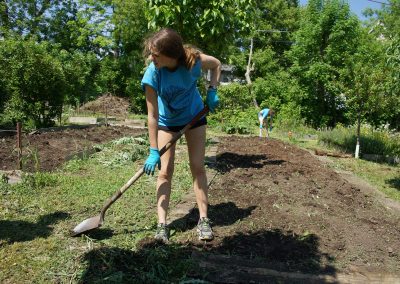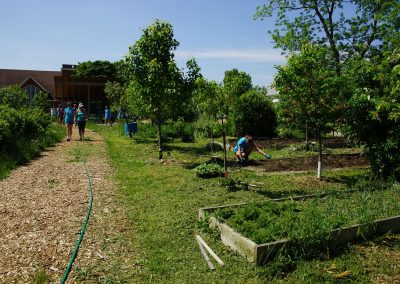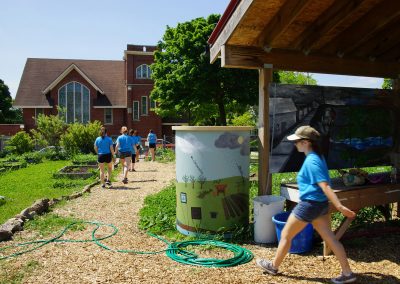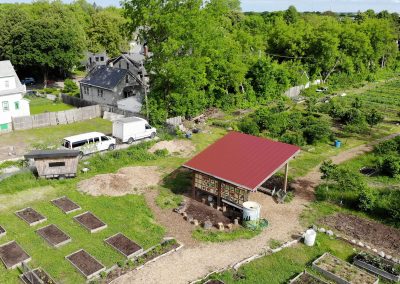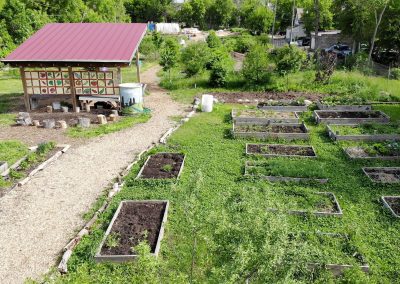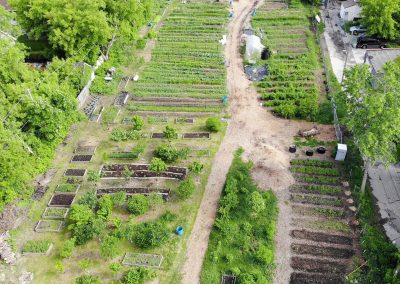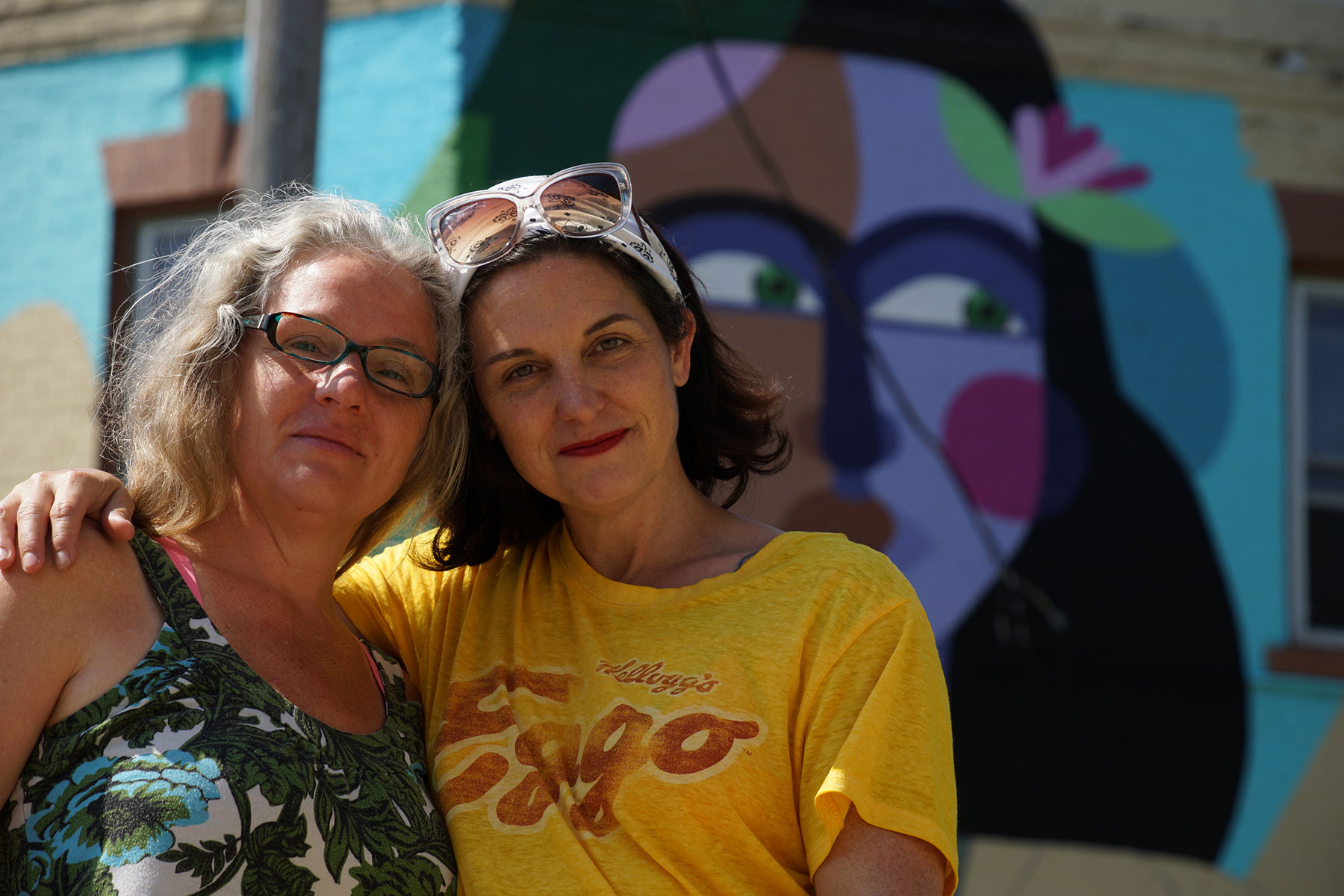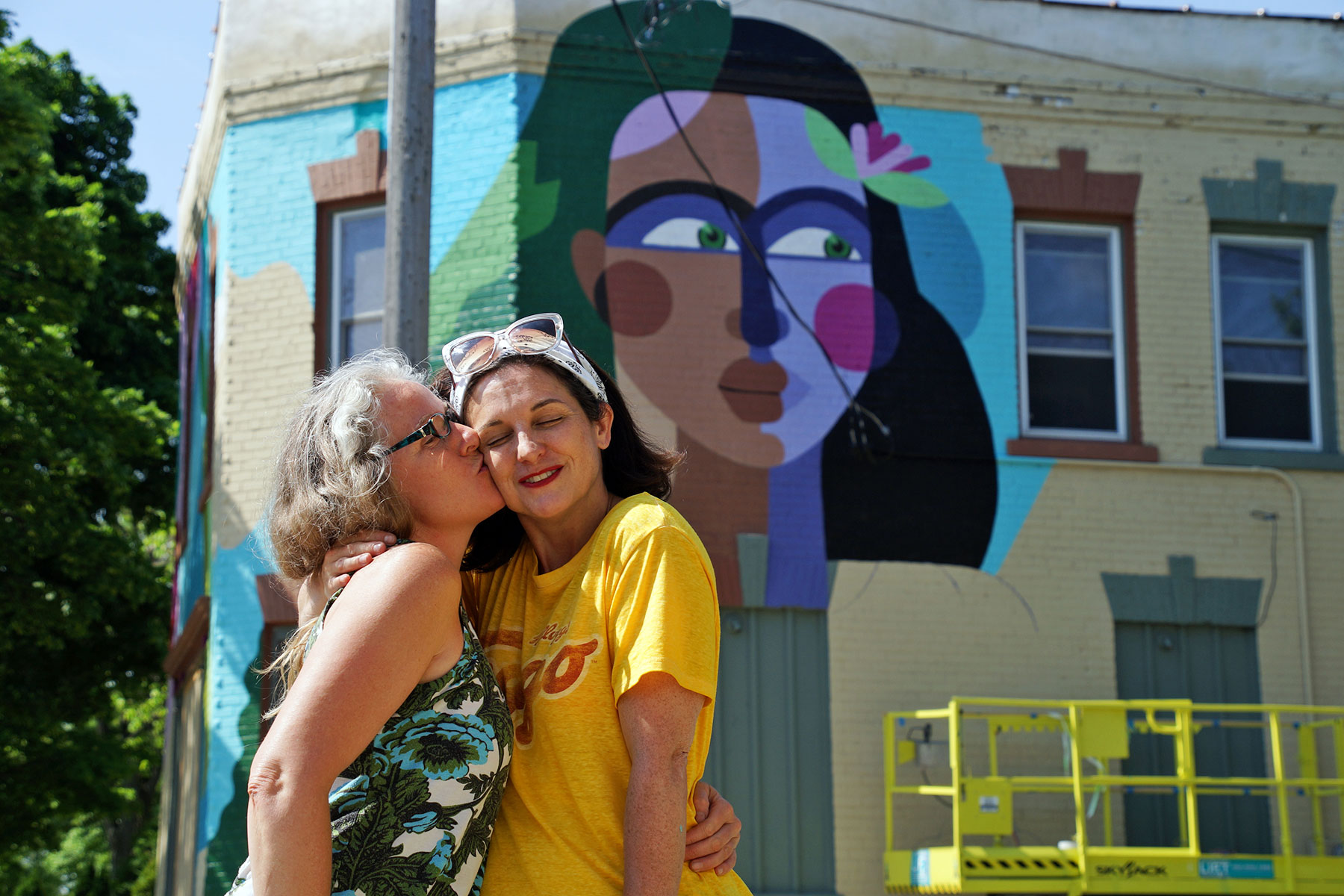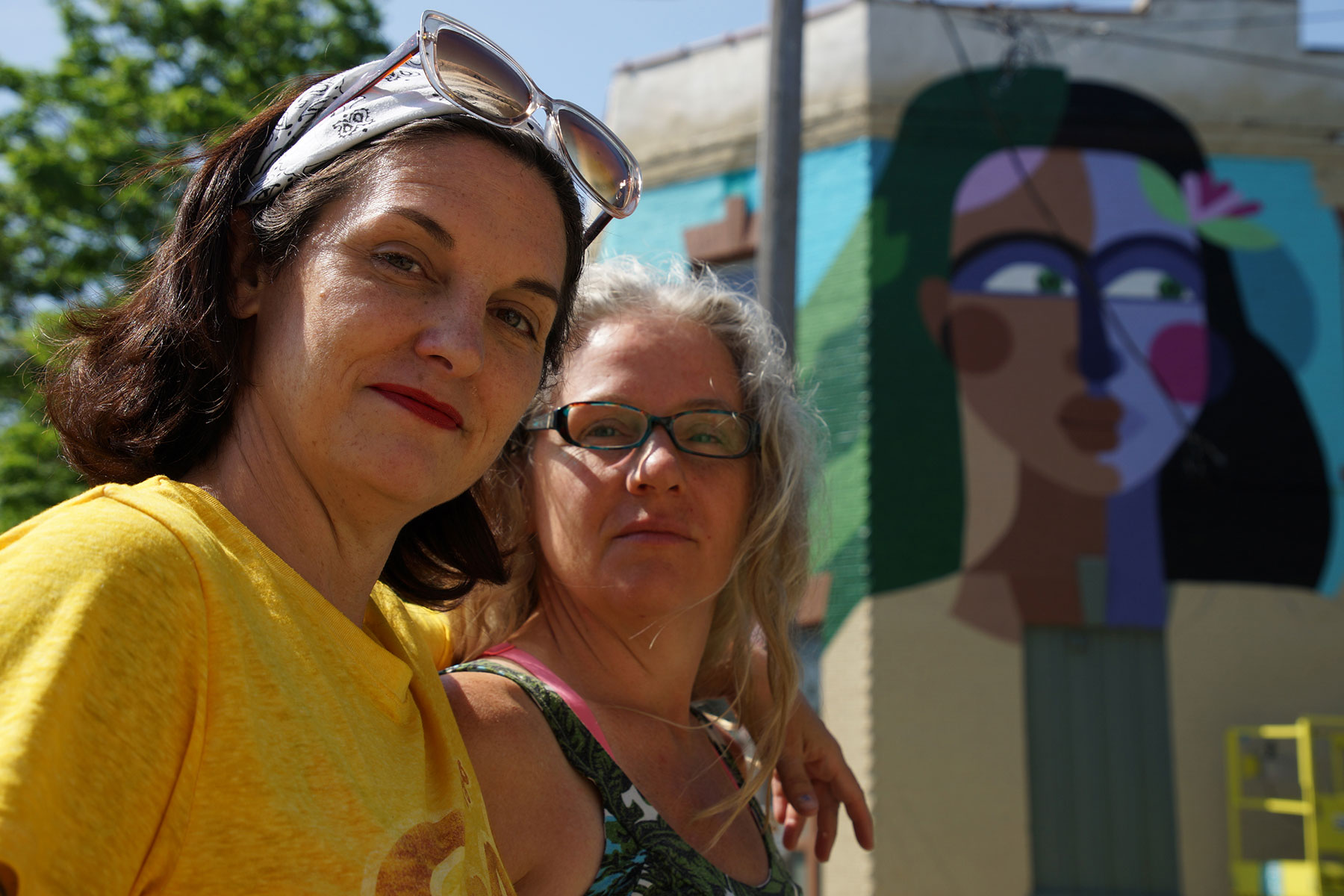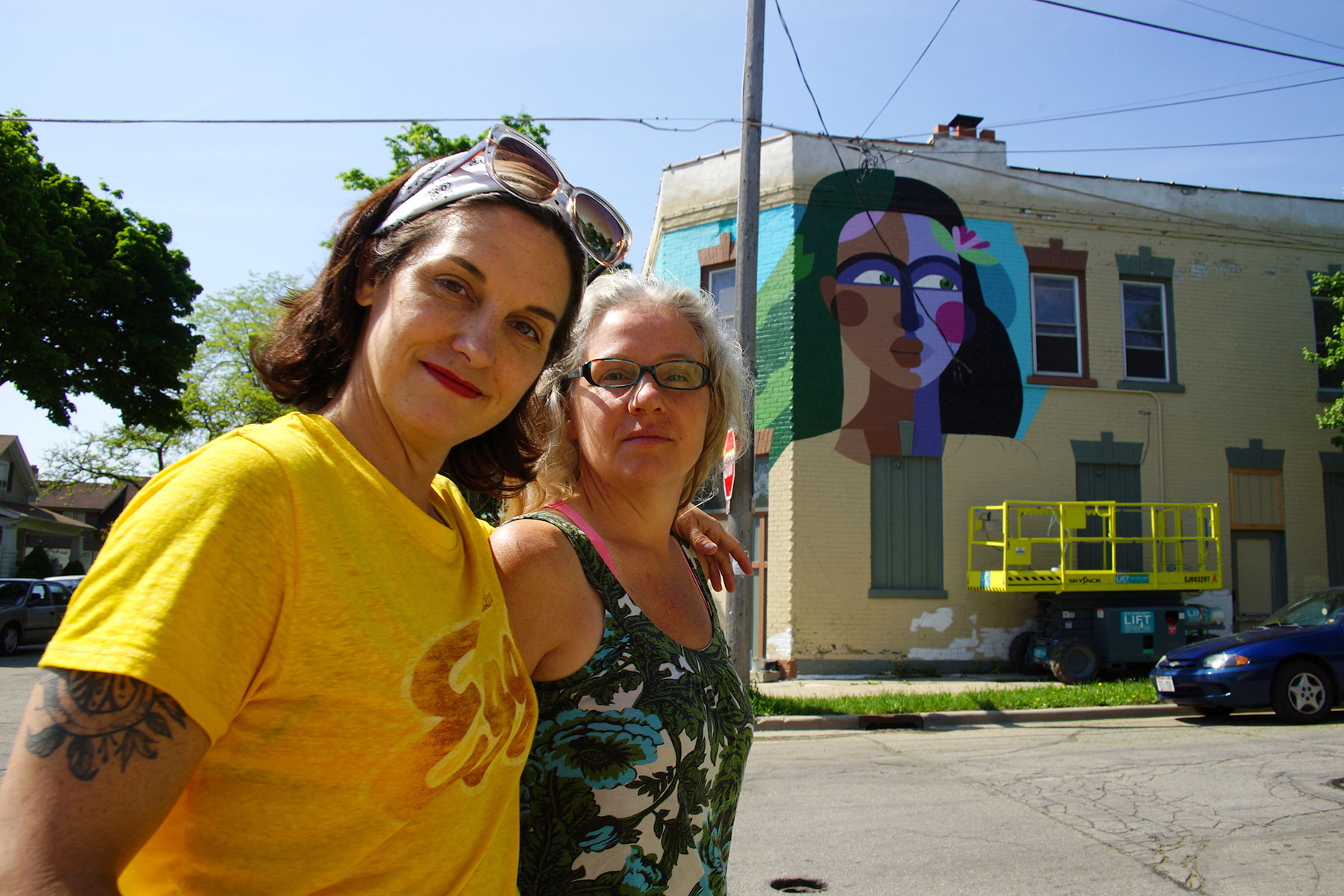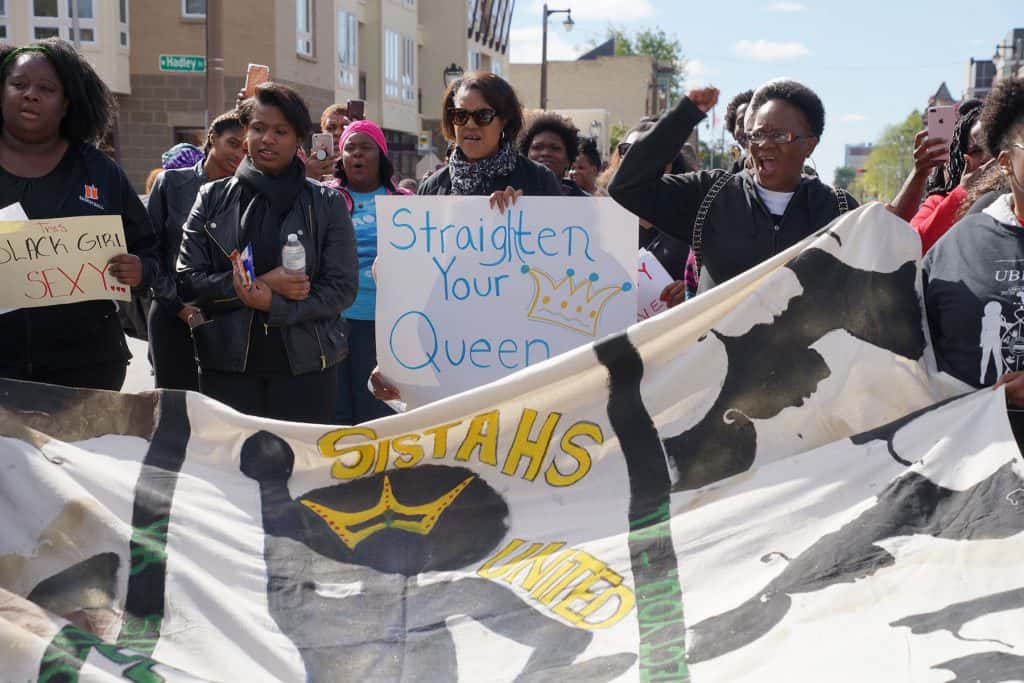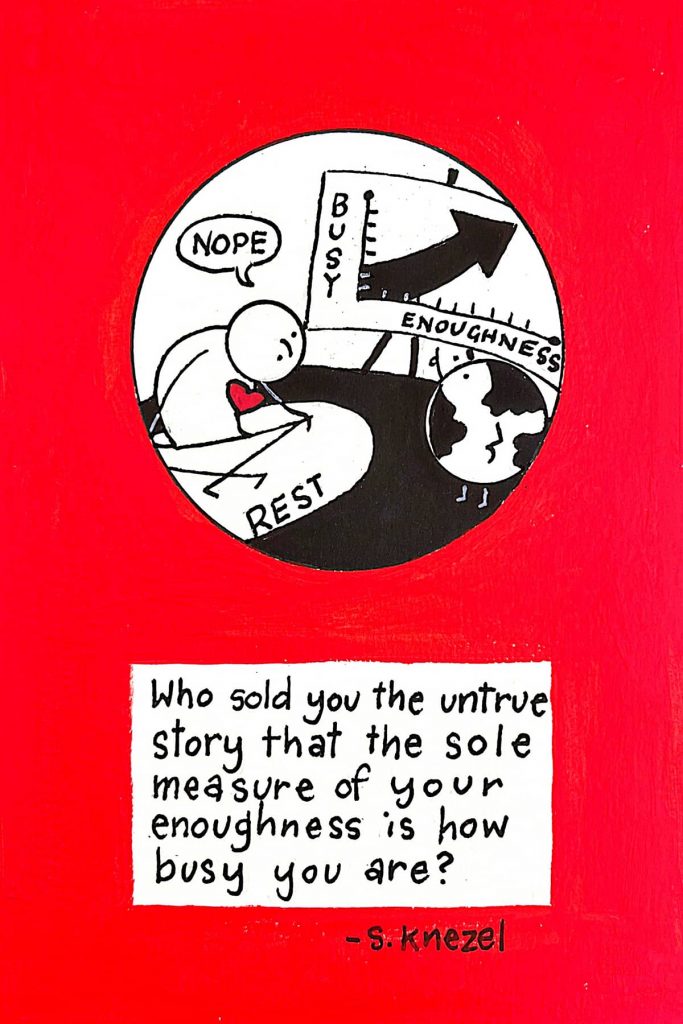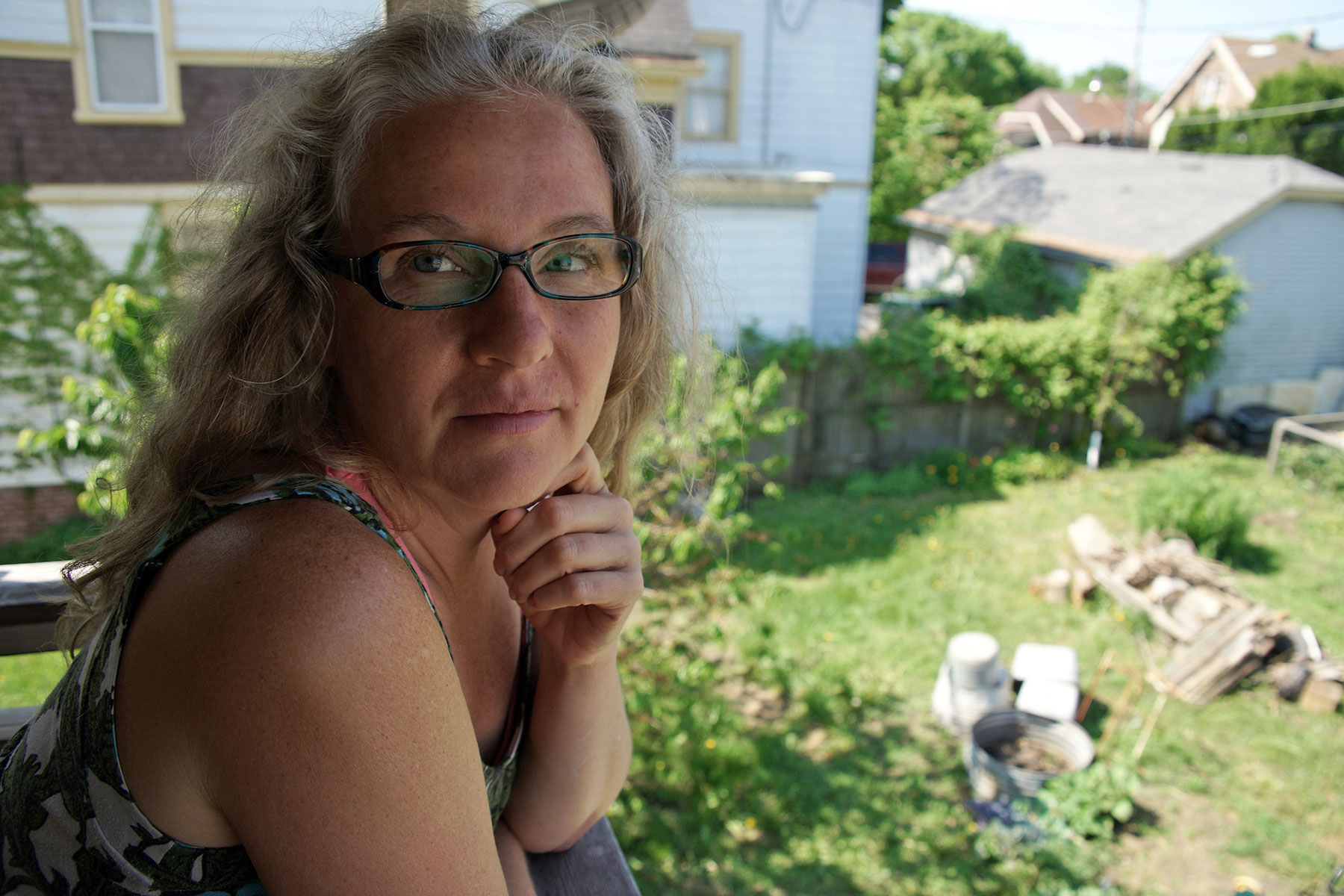
With a new Mother Nature mural adorning the 1904 facade, the building’s conversion is well underway as an Urban Campus for the Victory Garden Initiative (VGI), positioning it at center of urban agriculture in the Harambee neighborhood, and the fulfillment of Gretchen Mead’s long time dream.
VGI started ten years ago in the basement of Gretchen Mead’s home, as an idea to build communities that grow their own food for a socially just and sustainable food system. As Executive Director, Mead recently completed the organization’s move to its new location at 249 East Concordia Avenue. The building was originally constructed as a Pabst pub, and later served as a “Win a Soul” Church.
The last owners, who did some of the interior rehab work, also happen to be the family of a VGI worker who farms the VGI land nearby. Obtaining the building kept it within the VGI family, as it transitions into a place that advances farming and agriculture in the area.
There are big plans and ongoing efforts for two story Urban Farmhouse. The second floor office space was furnished from donations from MGIC. Staff has work space, an area for interns, and conference room. The building is roughly 2,000 square-feet, divided between both floors.
The ground level will eventually be a community classroom and event space. The hope is to blend their farm-to-table experience that supports their mission, while offering educational support to the community.
“We are in Phase I of our campaign for what we want to accomplish in the first year. That started with the purchase of this building, and the move of our office spaces here. Then we will rehab the event space and the classroom on the first floor, which is what we are working on right now,” said Mead. “Once the downstairs is complete, Phase II will be to open up the wall on the south facing wall, that connects to the classroom and the event space, and attach a greenhouse to the building. That will create an indoor-outdoor setting area for our farm-to-table events and educational programs.”
In addition to a staff kitchen on the second floor, there will be a functional commercial kitchen next to the event space on the ground level, to be used for educational purposes. Mead has some grand directions sketched out but not a fully developed vision imagined yet. She is leaving the door open to really listen to the needs of the surrounding community, in terms of how VGI should utilize the space. One thing for sure, the site will be doing a lot of workforce development.
VGI’s urban farmland can be seen from the second floor balcony facing west. It is a wonderful asset for the organization to just look out the window at the farm and see what is happening.
“We settled on this building because of proximity and perfection. It was the right price at the right location, and it is a beautiful space with no separation of our space. It is very inspiring to be here and it has feels like a home where our staff can be comfortable,” added Mead “Plus, we wanted a place where we can cook and eat food in the way we embody our mission, as an example for the world.”
VGI celebrated the end of its “Great Milwaukee Victory Garden BLITZ” on June 2, a two-week garden-building event that saw the construction of its 4,000th garden. It also marked the 10th anniversary of the organization.
The external mural, painted by artist Stacey Williams-Ng, was in production during the BLITZ. The central figure of the abstract art represents Mother Nature, which represents many aspects of VGI’s efforts to empower women involved with urban agriculture.
- Photo Essay: Fruity Nutty
- Victory Garden Initiative sees fruits of its community mission with Farmhouse expansion
- Fruity Nutty Affair to celebrate Urban Agriculture
- Victory Garden Initiative spreads edible abundance with annual orchard contest
- Victory Garden Blitz to install 500 gardens in 14 days
- Five hundred new gardens to be built during BLITZ
- Victory Garden Initiative awards five community orchards
- Victory Garden Initiative Celebrates Urban Orchards
- Victory Garden Initiative to train next wave of community leaders
- Map: Five Orchards
Lee Matz

